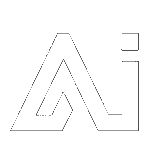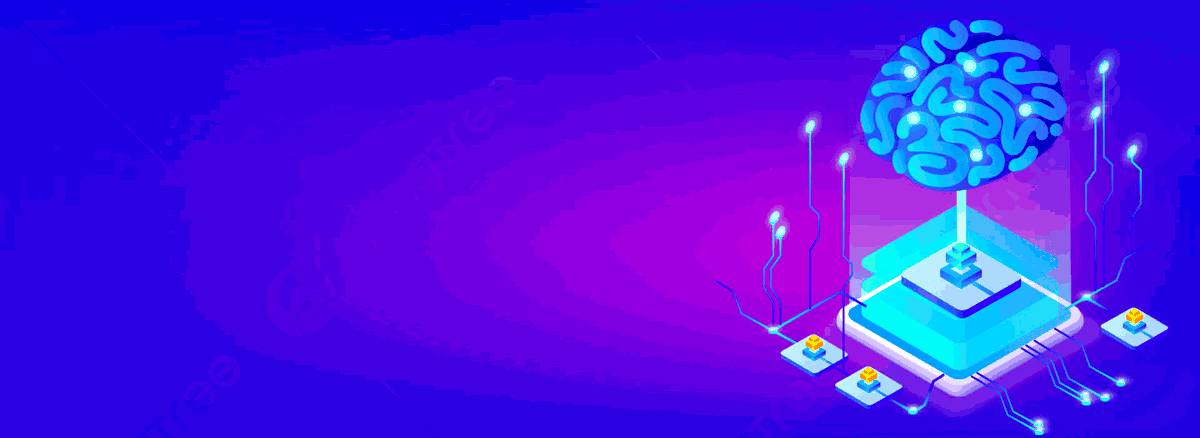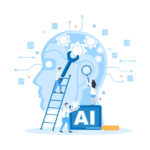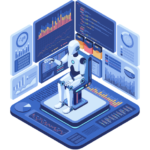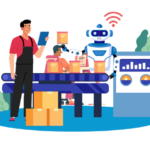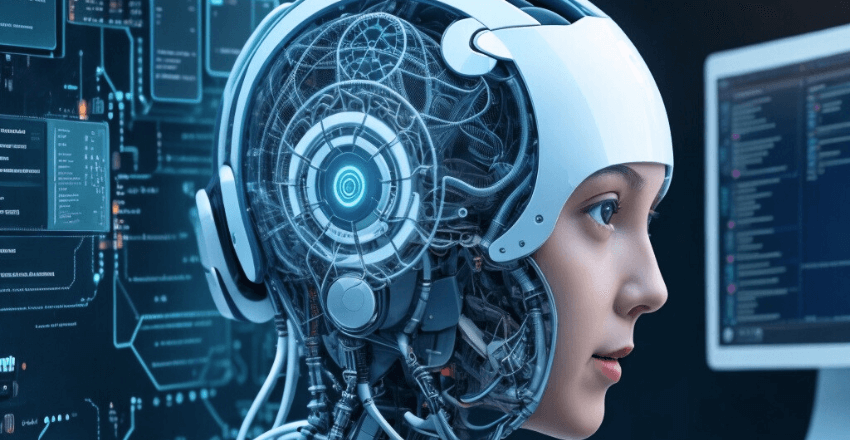 How AI will change Software Development paints a future where creativity and logic intertwine, creating a dance between man and machine.
How AI will change Software Development paints a future where creativity and logic intertwine, creating a dance between man and machine.
As technology continues to advance at an unprecedented rate, the role of artificial intelligence (AI) in software development is becoming increasingly important.
AI has the potential to revolutionize the way we approach software development, introducing new capabilities and efficiencies that were previously unimaginable.
In this article, we will explore the ways in which AI is changing the software development landscape, including its potential benefits and challenges.
Understanding Artificial Intelligence in Software Development
Artificial intelligence (AI) refers to the ability of machines to perform tasks that would typically require human intelligence, such as learning, problem-solving, and decision-making. In the context of software development, AI can play a crucial role in improving the efficiency and accuracy of various processes.
One key area where AI can be applied is in code analysis and optimization. Through machine learning algorithms, AI can analyze existing code repositories and identify patterns and best practices. This can help developers write better code and improve the overall quality of software applications.
Machine Learning
Machine learning is a subfield of AI that involves the development of algorithms that can learn from data and improve over time. In software development, machine learning can be used for a variety of tasks, from predicting software bugs to optimizing resource allocation.
Another area where AI can be applied in software development is in natural language processing (NLP). This involves the use of algorithms to analyze and understand human language, which can be useful for tasks such as documentation generation and automated code refactoring.
Natural Language Processing
NLP can also be used to improve communication and collaboration among software development teams. For example, AI-powered chatbots can help team members resolve issues more quickly and efficiently, while virtual assistants can provide real-time feedback and suggestions to developers as they work.
Overall, AI has the potential to revolutionize the way software is developed, tested, and maintained. However, it is important for developers to have a solid understanding of AI technologies and their applications in order to stay ahead of the curve in this rapidly evolving field.
AI-Powered Automation in Software Development
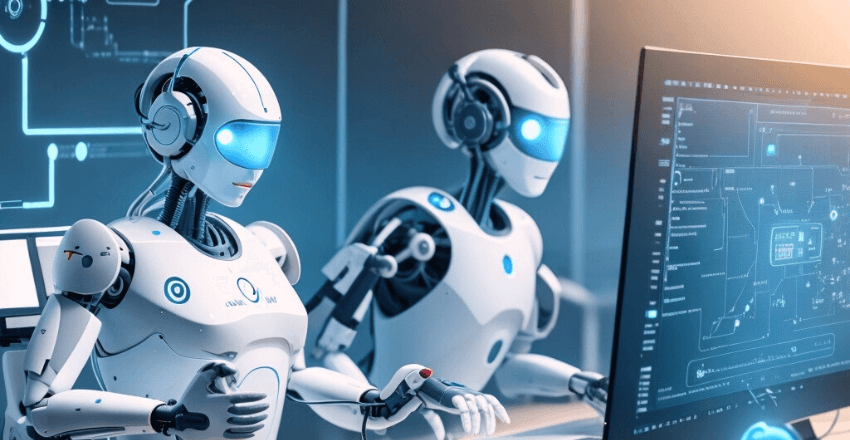
Artificial intelligence has the potential to automate various aspects of software development, making it faster and more efficient. By leveraging AI-powered automation, developers can save time and focus on more important tasks, such as implementing new features and addressing critical issues.
One area where AI can be particularly useful is code generation. With machine learning algorithms, AI can analyze existing code and generate new code based on patterns and structures it has learned.
This can be especially helpful in situations where code needs to be written quickly or where there is a shortage of developers with a specific expertise or skill set. Similarly, AI can be used to automate testing and debugging processes, reducing the time and effort required to identify and fix errors.
AI-Powered Tools for Code Analysis and Optimization
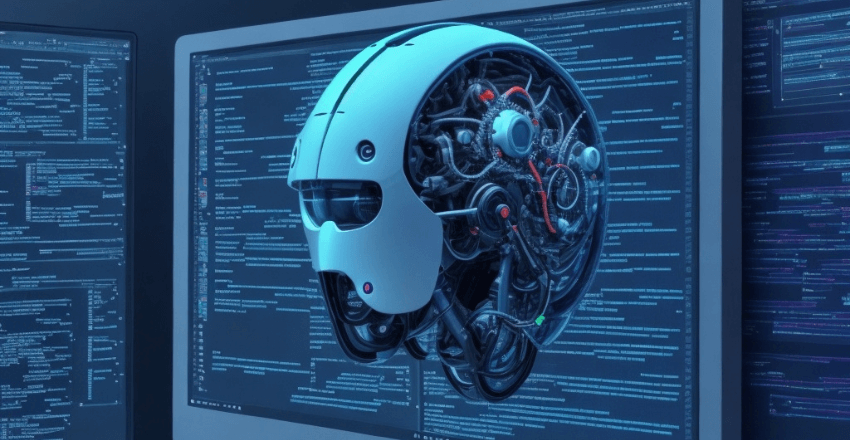
In addition to automating coding and testing processes, AI can also be used to analyze code and optimize it for better performance. By analyzing large amounts of code data, AI-powered tools can identify areas of code that are inefficient or likely to cause problems and suggest improvements.
This can help developers to optimize their code for faster execution and reduce the likelihood of errors or bugs.
Moreover, AI can assist in identifying patterns in code and replicating them across software projects. This can lead to a significant reduction in development time and cost, as well as ensuring consistency across multiple projects.
Finally, AI-powered automation can be used to enhance project management by automating tasks such as project scheduling, resource allocation, and risk assessment. By gathering and analyzing large amounts of data, AI can help project managers make informed decisions and allocate resources more effectively.
Enhanced Software Security with AI

As the threat of cyberattacks continues to loom over the software development industry, developers are seeking new ways to enhance the security of their applications. One promising approach is the use of artificial intelligence (AI) to identify and mitigate potential risks.
AI-powered security solutions leverage machine learning algorithms to analyze data and identify patterns that may indicate a security breach.
They can also monitor user behavior to detect anomalies and potential threats in real-time. By automating security processes and providing real-time alerts, AI can significantly improve the speed and accuracy of threat detection and response.
| Benefits of AI-powered Security | Challenges to Consider |
|---|---|
|
|
Despite the potential benefits, however, implementing AI in security systems also presents unique challenges and ethical considerations.
For example, there is a risk of bias in AI models if they are not trained on diverse datasets. Additionally, the use of AI for surveillance purposes raises privacy concerns that must be carefully addressed.
“AI-powered security solutions leverage machine learning algorithms to analyze data and identify patterns that may indicate a security breach.”
As with any industry where security is paramount, it is essential that developers remain vigilant and proactive in addressing these concerns.
By carefully evaluating the benefits and risks of AI-powered security solutions, and implementing appropriate safeguards and oversight measures, software developers can leverage AI to enhance security and protect their applications from cyber threats.
AI-Driven Predictive Analytics in Software Development
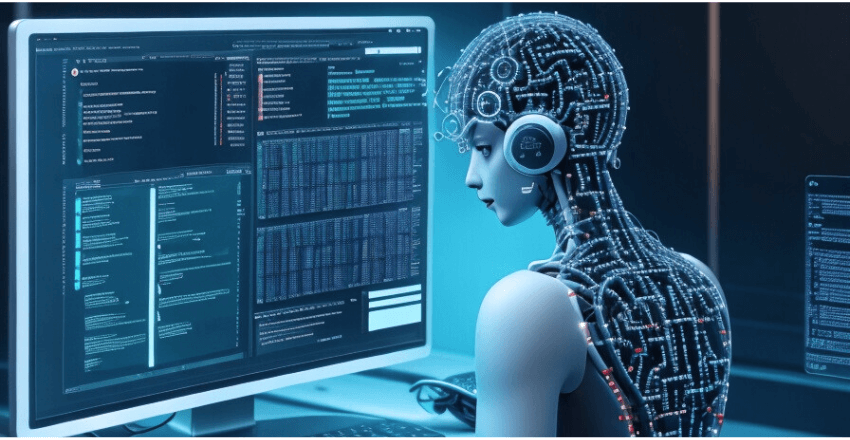
One of the most promising applications of AI in software development is the use of predictive analytics. By leveraging AI algorithms to analyze vast amounts of data, developers can gain valuable insights and make informed decisions about their projects.
Predictive analytics can be applied to various aspects of software development, from requirements gathering to testing and deployment.
For example, AI can help identify potential risks and estimate project timelines based on historical data. It can also suggest optimal resource allocation based on team capacity and project requirements.
AI algorithms can also provide real-time feedback on code quality and performance. By analyzing code metrics and identifying patterns, AI can flag potential issues and suggest improvements. This can help reduce the time and effort required for manual code reviews and debugging.
Another benefit of AI-driven predictive analytics in software development is the ability to forecast user behavior and preferences. By analyzing user data and feedback, AI can suggest new features and improvements that align with user needs.
This can help developers build more user-centric products that are more likely to drive engagement and revenue.
While the potential benefits of AI-driven predictive analytics in software development are clear, there are also challenges and risks to consider. For example, the quality and accuracy of AI predictions depend heavily on the quality and relevance of training data.
If the data used to train the AI model is biased or incomplete, it can lead to inaccurate or misleading predictions.
Furthermore, the use of AI in software development raises ethical considerations, such as privacy and data security. Developers must ensure that user data is collected and used in a responsible and transparent manner, and that AI algorithms do not perpetuate or amplify existing biases and inequalities.
Natural Language Processing and AI in Software Development
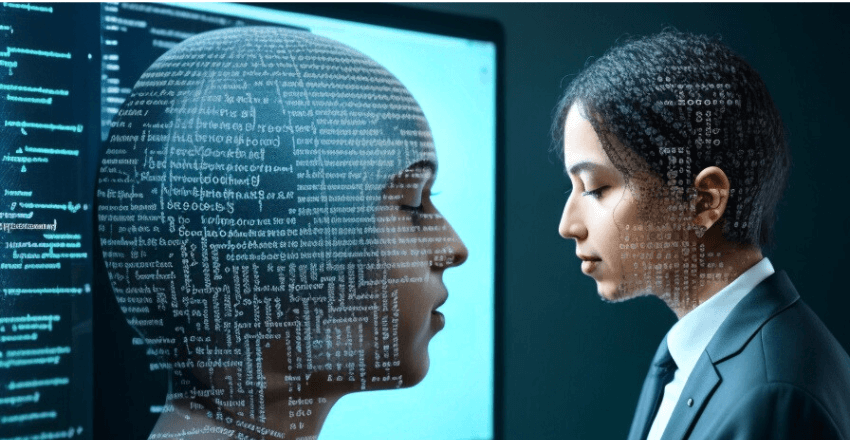
Natural language processing (NLP) is a branch of AI that focuses on enabling machines to understand and interpret human language.
In the context of software development, NLP-powered AI solutions offer a range of benefits, including code summarization, documentation generation, and automated code refactoring.
One of the key advantages of NLP in software development is that it helps reduce the time and effort required for writing and updating documentation.
By analyzing large volumes of text data, NLP algorithms can extract key concepts and topics from software documentation, generating summaries and abstracts that are easier to understand and navigate. This can be particularly useful in complex software projects that involve multiple teams and stakeholders.
NLP can also be used to automate code refactoring, which involves improving the design and structure of software code without changing its behavior.
By analyzing code patterns and identifying potential areas for optimization, NLP algorithms can suggest changes and revisions that can lead to improved performance, reliability, and maintainability. This can help developers save time and effort, while also enhancing the overall quality of the software.
Example of NLP and AI in Software Development: Code Generation
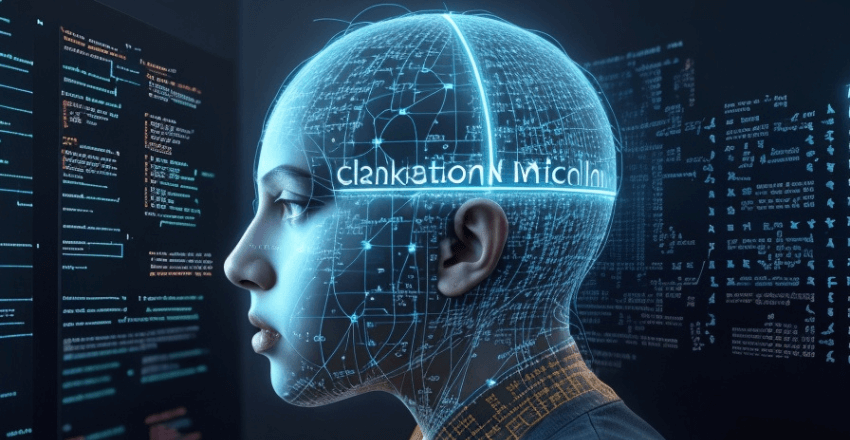
Another area where NLP and AI can have a significant impact on software development is code generation. By analyzing natural language descriptions of software requirements and specifications, NLP algorithms can generate code automatically, reducing the need for manual coding.
This can help developers work more efficiently and effectively, while also reducing the risk of errors and inconsistencies in the code.
However, it is important to note that NLP-powered AI solutions are not without their challenges and limitations. For example, NLP algorithms may struggle with understanding and interpreting non-standard language constructs, such as domain-specific jargon and slang.
They may also be impacted by biases and inconsistencies in the training data, leading to errors or inaccuracies in their output. As a result, it is essential to carefully evaluate the performance and accuracy of NLP-powered AI solutions before implementing them in software development projects.
AI-Enabled Collaboration Tools for Software Development
Collaboration is key to successful software development, and AI-powered collaboration tools can take teamwork to the next level.
By leveraging machine learning and natural language processing (NLP), these tools can enable better communication, increase productivity, and facilitate knowledge sharing among team members.
Intelligent project management tools can help teams stay on track and meet deadlines by identifying potential roadblocks and suggesting solutions. These tools can also optimize resource allocation by analyzing team members’ skills and availability.
Virtual assistants, powered by AI, can automate repetitive tasks and provide valuable insights based on data analysis. For example, they can automatically schedule meetings, generate reports, and offer recommendations for process improvements.
AI-enhanced platforms boost collaboration by streamlining information sharing and problem-solving. Users can leverage NLP for swift, relevant searches, and auto-translation tools help overcome language hurdles in international teams.
By harnessing the power of AI, collaboration tools can help software development teams work more efficiently and effectively, ultimately leading to better project outcomes.
Implementing AI in the Software Development Lifecycle
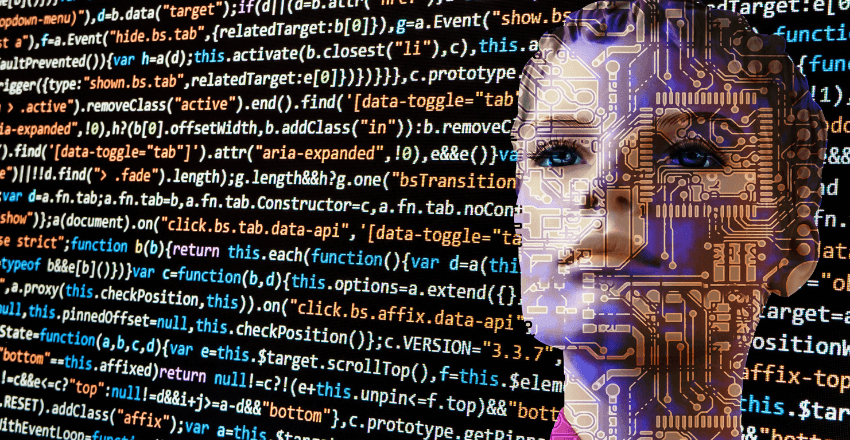
Integrating AI into software development processes requires careful consideration of several practical and ethical factors. Here are some key points to keep in mind:
Data Requirements:
AI models need large amounts of data to train and make accurate predictions. Therefore, it’s crucial to ensure that the data used in AI models is diverse, representative, and of high quality. It’s also important to consider data privacy and security issues when gathering and using data.
Model Training:
Developers need to have a deep understanding of AI algorithms and techniques, as well as experience in machine learning, to build effective models. This can require a significant investment in training and development for team members.
Integration with Existing Tools:
AI-powered tools must be integrated with existing software development tools and processes, such as IDEs, version control systems, and issue trackers. This requires a careful analysis of the features and compatibility of different tools, as well as technical know-how in integrating them.
Ethical Considerations:
AI models and algorithms can be biased, unfair, or discriminatory if not designed and used appropriately. It’s important to consider ethical and moral implications of AI-driven software development, such as transparency, explainability, accountability, and fairness.
This requires a culture of ethical awareness and responsibility within development teams.
AI and the Future of Software Development Jobs
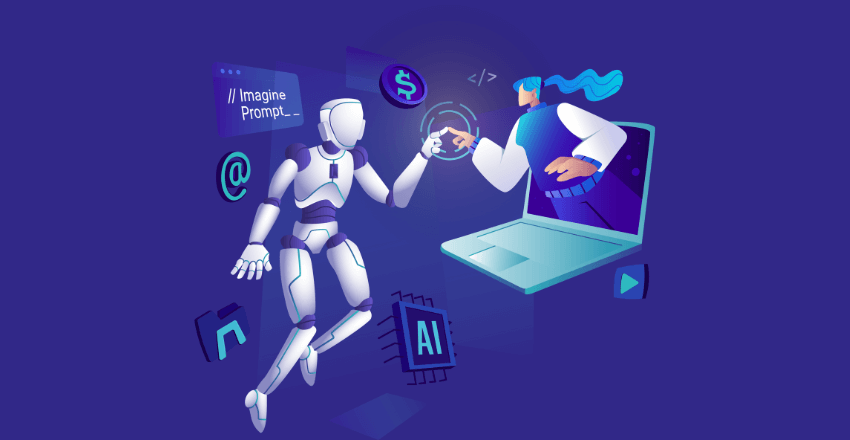
The integration of AI in software development processes has raised concerns about the potential impact on job markets in the industry. While some fear that AI will replace human developers, others believe that it will create new opportunities and augment existing roles.
The potential risks
One of the main concerns with the adoption of AI in software development is the potential displacement of jobs. As AI continues to automate tasks previously performed by humans, certain roles may become redundant.
This can lead to job losses and career disruptions for developers who do not have the skills required to work alongside AI-driven systems.
Another issue is the potential for bias in AI algorithms. If AI systems are developed and trained by a homogeneous group of developers, there is a risk that the systems will perpetuate the same biases and inequalities that exist in society.
This can lead to discriminatory or unfair outcomes in decision-making processes.
The potential opportunities
Despite these risks, there are also many potential opportunities for developers who are willing to adapt to the changing landscape of software development. AI can augment existing roles, freeing up time for developers to focus on more creative and strategic tasks.
AI can also open up new career paths in areas such as data science, machine learning, and AI engineering. Developers who have experience with AI systems and technologies may be in high demand as the industry continues to evolve and grow.
Adapting to the evolving landscape
To stay ahead of the curve in the age of AI-driven software development, developers need to be proactive in acquiring new skills and keeping up with emerging technologies. This can involve upskilling in areas such as data analytics, machine learning, and natural language processing.
Developers also need to be aware of the potential risks and ethical considerations associated with AI-driven systems. They must ensure that their AI models and algorithms are transparent, fair, and free from bias.
Overall, the integration of AI in software development represents a significant shift in the industry. While there are potential risks and challenges, there are also numerous opportunities for developers who are willing to adapt and embrace the changing landscape of software development.
Examples of AI in Software Development
Artificial intelligence has already made a significant impact on the software development industry, and organizations of all sizes are exploring the possibilities of leveraging AI-driven solutions to optimize their workflows and improve their products.
Here are some examples of real-world AI applications in software development:
1. Microsoft’s DeepCoder
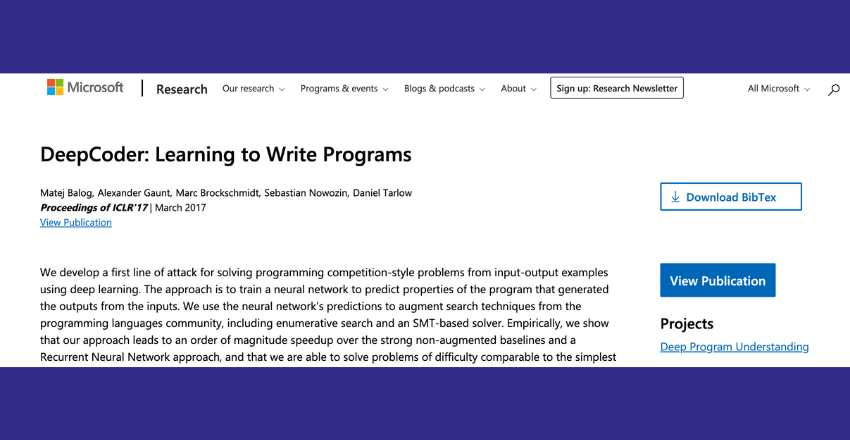
Microsoft’s DeepCoder is an AI-powered system that can write code by scanning existing lines of code and using that information to generate new code that meets certain requirements. DeepCoder has the potential to save developers significant time and effort, allowing them to focus on more complex tasks.
2. IBM’s Watson Discovery Service
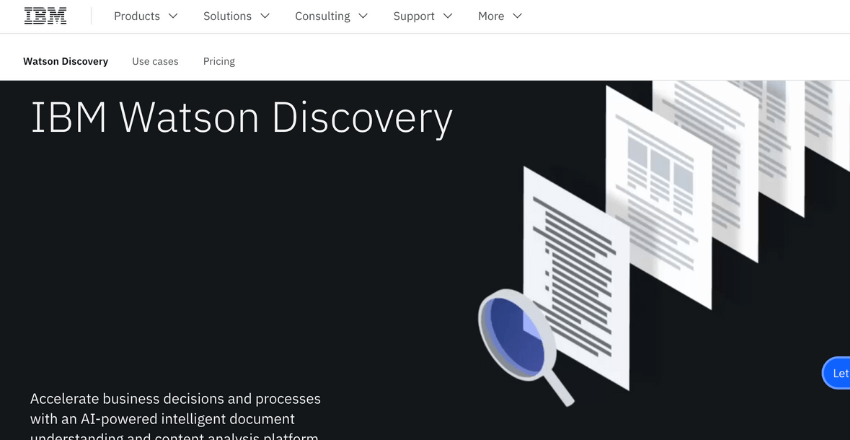
IBM’s Watson Discovery Service is an AI-driven platform that can help developers automate the process of identifying trends and patterns in large datasets. With Watson Discovery, developers can quickly extract insights from data, improving decision-making and enabling more proactive response to emerging trends.
3. GitHub’s CodeQL
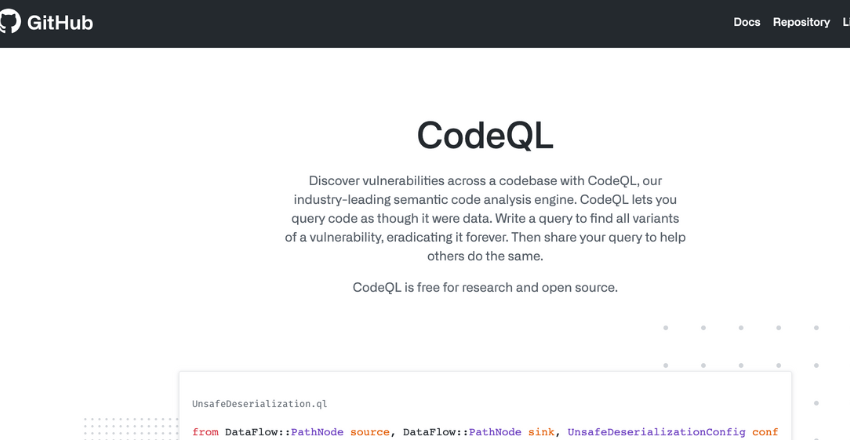
GitHub’s CodeQL is an advanced code analysis tool that leverages AI to identify and fix security vulnerabilities in code. CodeQL uses machine learning algorithms to detect patterns in code that may be indicative of security risks, such as buffer overflow vulnerabilities and SQL injection flaws.
4. Adaptavist’s ScriptRunner
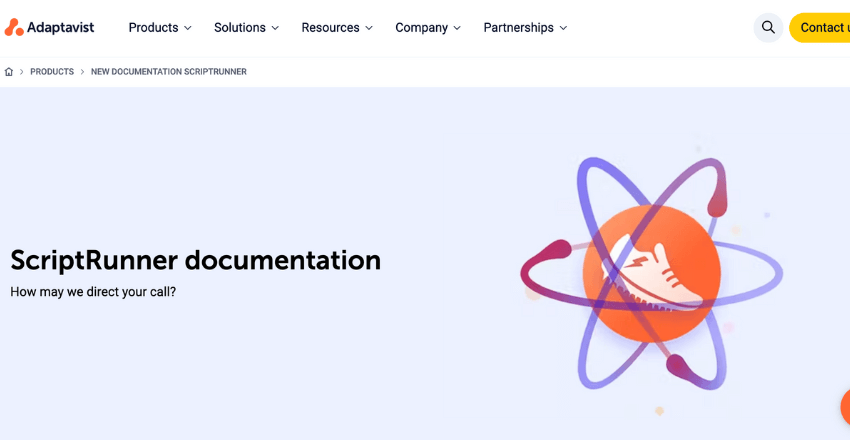
Adaptavist’s ScriptRunner is a popular tool for automating routine tasks in software development, such as testing and deployment. ScriptRunner uses AI algorithms to optimize workflows, reducing the amount of manual effort required to complete routine tasks and enabling developers to focus on more complex assignments.
5. Salesforce’s Einstein
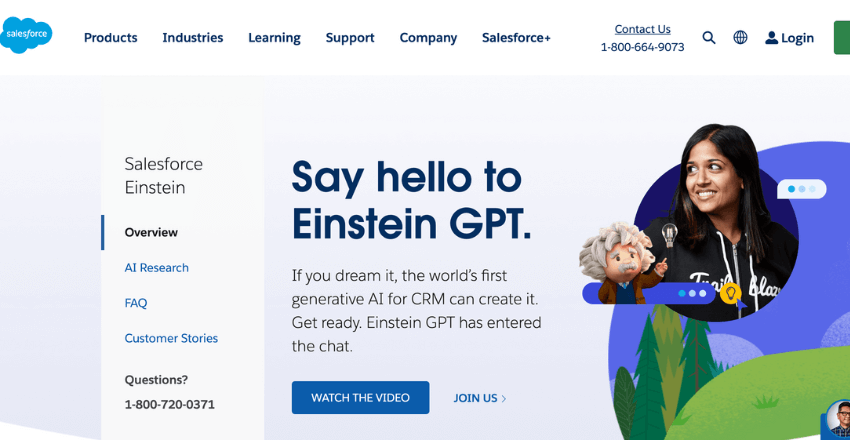
Salesforce’s Einstein platform is an AI-driven suite of tools that can help developers automate various aspects of the software development lifecycle, including testing, debugging, and deployment.
With Einstein, developers can leverage the power of machine learning and data analytics to improve the efficiency and quality of their products.
These examples demonstrate the diverse range of AI applications in software development and highlight the potential of AI to revolutionize the industry in the coming years.
Overcoming Challenges and Ethical Considerations in AI-Driven Software Development

As with any emerging technology, integrating AI into software development processes comes with challenges and ethical considerations that must be addressed in order to ensure safe and effective implementation.
Challenges
One of the biggest challenges of AI-driven software development is the need for large amounts of high-quality data to train AI models. This requires significant resources and expertise in data collection, cleaning, and processing.
Additionally, there may be concerns about the quality and diversity of the data, which could lead to biased or inaccurate models.
Another challenge is the complexity of AI models, which can be difficult to understand and interpret. This can make it challenging to identify errors or biases in the models and to ensure accountability for their behavior.
Finally, there may be resistance to adopting AI-powered solutions due to concerns about job displacement and the need for new skills.
Ethical Considerations
There are a number of ethical considerations that must be taken into account when developing and deploying AI applications in software development. Perhaps the most pressing concern is the potential for biased or discriminatory outcomes resulting from the use of biased data or insufficient oversight.
Other concerns include the potential for AI to be used to violate privacy rights, either by collecting and analyzing personal data without consent or by using data in ways that are not transparent to users.
Additionally, there may be concerns about the use of AI to replace human decision-making in areas such as hiring, lending, and criminal justice, which could have significant social and economic impacts.
Finally, there may be concerns about the lack of accountability and transparency in AI systems, which can make it difficult to understand and address errors or biases that arise.
Addressing Challenges and Ethical Considerations
To address the challenges of AI-driven software development, organizations may need to invest in data quality and data management systems, as well as in the development of new skills and expertise in machine learning and AI.
Additionally, it may be necessary to implement safeguards to ensure that AI models are developed and used in a responsible and ethical manner.
One approach to addressing ethical considerations in AI-driven software development is to incorporate ethical frameworks into the design and development of AI systems.
These frameworks can help to ensure that AI is developed and used in ways that align with societal values and priorities, while also providing transparency and accountability for the behavior of the systems.
Ultimately, addressing the challenges and ethical considerations of AI-driven software development will require a collaborative effort among developers, regulators, and other stakeholders to ensure that the benefits of AI are realized while also minimizing the risks and unintended consequences.
Frequently Asked Questions about AI in Software Development
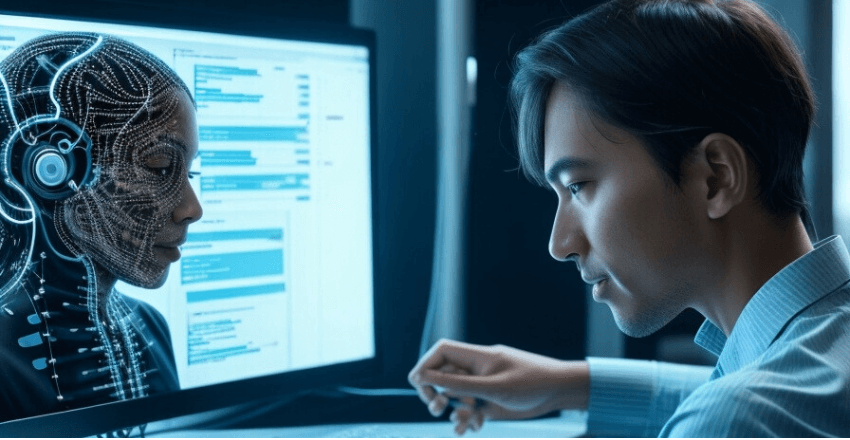
As AI continues to revolutionize the way we approach software development, many questions have emerged regarding its implementation, potential risks, and future trends. Here are answers to some of the most frequently asked questions about AI in software development.
What are the challenges of implementing AI in software development?
One of the biggest challenges of implementing AI in software development is the availability of high-quality data for training AI models. Additionally, integrating AI tools with existing development processes and tools can be complex.
Finally, there is a lack of skilled professionals who are capable of implementing and managing AI solutions within software development organizations.
What skills are needed to work with AI in software development?
To work with AI in software development, one must have a solid understanding of AI technologies, data analytics, and software development processes. Additionally, skills such as programming, data mining, machine learning, and natural language processing are highly desirable.
What are the potential ethical risks associated with AI in software development?
The use of AI in software development raises ethical concerns such as privacy, transparency, accountability, and bias. AI models can perpetuate existing biases and discrimination if not carefully monitored, which could have negative impacts on both individuals and society as a whole. Developers must remain vigilant and take measures to ensure ethical and fair use of AI in software development.
How can AI be used to improve software security?
AI can be used to improve software security by analyzing vast amounts of data for identifying and mitigating potential risks, detecting anomalies, and monitoring system behavior for potential threats. Additionally, AI can assist in identifying vulnerabilities and providing early warning signals to enable proactive mitigation measures.
Why is AI in Software Development a Game Changer?
Artificial Intelligence, with its array of applications, has seeped into numerous domains, and software development is no exception. It’s transforming the way we write, test, and maintain code, making software development more efficient and insightful.
AI’s capabilities span across four key areas in software development:
- Efficiency in Code Generation and Error Detection: AI tools can automatically generate and refactor code, enhancing productivity and reducing errors.
- Big Data Processing: AI can handle and analyze large volumes of data to derive insights and drive decision-making.
- Personalized User Experiences: AI can tailor software applications to individual user needs and behaviors, improving engagement and satisfaction.
- Automation of Repetitive Tasks: AI can streamline repetitive tasks, freeing up developers to focus on more complex and creative aspects of software development.
“AI is ushering in a new era of software development. It’s not about replacing developers; it’s about augmenting their capabilities, helping them to do more, faster, and with greater accuracy.”
Addressing the Arguments Against AI in Software Development
While the benefits of AI in software development are promising, it’s crucial to address the potential downsides and doubts that surround its application:
- Potential Loss of Jobs: Critics argue that AI could replace human developers. However, the goal of AI in software development isn’t job displacement; it’s job enhancement. It’s about automating the mundane so that developers can focus on the innovative.
- Challenges in Explainability and Transparency: AI’s decision-making process can often be a black box, making it challenging for developers to understand or explain. Progress is being made in the field of explainable AI, which aims to make AI decision-making processes more transparent and understandable.
- Reliance on Data Quality and Availability: AI’s effectiveness is often tied to the quality and availability of data. Ensuring data integrity, therefore, becomes critical.
“AI doesn’t eliminate jobs; it eliminates the mundane aspects of jobs.“
Best Practices in Action: AI-Powered Software Development
To harness the benefits of AI in software development while mitigating the challenges, here are some practical strategies, illustrated with examples and pro tips:
Example: Using AI for Code Generation and Error Detection
One of the promising AI tools in the market, Codex by OpenAI, can generate code snippets, functions, and even whole programs from natural language descriptions.
# Example: Ask Codex to generate a Python function to calculate Fibonacci numbers
"""
User: Write a function in Python to calculate Fibonacci numbers.
Codex:
def fib(n):
if n <= 0:
return 0
elif n == 1:
return 1
else:
return fib(n-1) + fib(n-2)
"""Pro Tip: Use AI code generation tools as a starting point and refine the generated code to suit your project requirements and coding standards.
Example: Harnessing AI for Personalized User Experiences
AI-powered recommendation systems, like those used by Netflix or Amazon, tailor user experiences based on past behavior, enhancing user engagement and satisfaction.
Pro Tip: Prioritize user privacy and data security when implementing AI for personalization. Always keep your users informed about the data you collect and how it’s used.
Example: Automating Repetitive Tasks with AI
AI can be used to automate repetitive tasks such as running regular tests, sending notifications, or updating project tracking tools.
Pro Tip: Start by automating small, well-defined tasks. Monitor and fine-tune the automation process before scaling it up.
While AI has the potential to significantly transform software development, its application must be thoughtfully executed to mitigate potential downsides. The key is to view AI not as a replacement for human developers, but as a tool that enhances their capabilities.
As we continue to innovate, let’s remember the words: “AI is here to supercharge our abilities, not replace them.”
What are your thoughts on AI in software development? Have you experienced its benefits or faced its challenges? Share your experiences and join the discussion.
Will AI Replace Software Engineers?
As the tide of AI swells, a question often bubbles to the surface: Will AI replace software engineers? The question is as intriguing as it is complex, with equally compelling arguments on both sides. Let’s dive deeper into this topic and explore the reality of AI’s role in software engineering.
Why AI Might Replace Certain Aspects of Software Engineering
The advent of AI has given rise to several transformative technologies that are reshaping the landscape of software engineering:
- Automation of Tasks and Functions: With its advanced machine learning capabilities, AI can automate several tasks in the software development lifecycle, such as code generation, error detection, and debugging, making the process more efficient.
- Development of Tools Capable of Writing Code: AI-powered tools like Codex by OpenAI are making waves by generating human-like code. These tools could potentially automate significant parts of coding.
“With AI, we’re moving towards a future where software development could become more of a supervisory role, with AI handling a lot of the groundwork.”
Reasons Why AI Will Not Replace Software Engineers
Despite the advancements of AI, there are fundamental aspects of software engineering that are irreplaceable:
- Necessity of Human Intuition and Creativity: While AI can learn patterns and mimic responses, it lacks the ability to intuitively understand a problem or conjure creative solutions like a human mind. It cannot replicate the spark of human creativity that often leads to groundbreaking innovation.
- Ethical Considerations: Ethical programming is crucial in software development. AI, devoid of a moral compass, cannot make ethical decisions, reinforcing the need for human intervention.
- AI Systems Still Require Human Oversight and Management: Despite their autonomy, AI systems are creations of human beings and require human oversight for direction, management, and quality control.
“AI can’t replace the ‘art’ in the ‘art of programming.’ It can’t emulate human creativity, ethical considerations, or management. In fact, as AI continues to advance, our role as software engineers becomes ever more important.”
Addressing the Doubts: AI as a Tool, Not a Replacement
While AI can automate certain aspects of software development, it is essential to view it as a tool that augments human ability rather than a replacement for human software engineers.
Example: Code Generation and Review with AI
AI tools such as Kite or Codex can automate code generation and review tasks. These tools, however, still need the expertise of a human developer to guide them and evaluate their output.
# An AI tool can generate code like this:
def factorial(n):
if n == 0:
return 1
else:
return n * factorial(n-1)Pro Tip: Use AI tools as a supplement to your coding process, not a replacement. They are best used for automating repetitive tasks and providing suggestions, not for creating complex, creative solutions.
Example: AI for Automated Testing
AI can help automate software testing, making the process faster and more efficient. However, it still requires human oversight to interpret results and implement fixes.
Pro Tip: Use AI for testing where it makes sense, but remember that human testers are still needed to understand the context and consequences of different testing results.
While AI brings significant advancements to software engineering, it does not signal the end of the software engineer.
Instead, it brings forth a new era of software development where the human mind and artificial intelligence work in tandem to drive innovation and efficiency.
What’s your take on AI’s role in software engineering? Will it replace or enhance the work of software engineers? Let’s continue the conversation.
What is the Role of AI in Software Development?
The discourse around AI’s role in software development is often laced with both excitement and trepidation. As we look towards a future marked by AI advancements, it’s time to dissect what these developments mean for software developers and the industry at large.
The Protagonist: AI’s Positive Impact on Software Development
AI’s contributions to software development are impressive. From debugging to decision-making, it’s an undeniable game-changer:
- Improving Debugging and Testing Processes: AI can sift through code to detect errors and automate testing, accelerating the development process.
- Enabling Data-Driven Decision Making: AI’s capacity to process and analyze vast amounts of data helps guide strategic decisions.
- Enhancing User Interface Design Through Personalization: AI algorithms can personalize interfaces to individual user preferences, leading to better user experiences.
“AI is revolutionizing software development. It’s not only making our work more efficient but also more insightful and personalized.”
The Antagonist: Challenges Accompanying AI in Software Development
While the benefits are significant, potential pitfalls exist:
- Complexity and Cost of Implementation: Integrating AI into existing systems can be challenging and costly.
- Potential Over-Reliance on AI Tools: An over-dependence on AI could stifle human creativity and intuition, key aspects of software development.
- Ethical and Privacy Concerns: With AI’s capability to collect and analyze data comes the need for stringent ethical and privacy standards.
“The key with AI is balance. It’s about using AI to augment our abilities, not replacing them, and always maintaining strong ethical standards.”
Best Practices: Striking a Balance in the Age of AI
The way forward is in leveraging AI’s strengths while addressing its challenges. Here are some strategies, illustrated with examples and pro tips:
Example: AI-Powered Debugging
Consider DeepCode, an AI-powered code review tool. It learns from GitHub project data to suggest improvements and detect potential bugs.
What is the AI Software Development Process?
Understanding the AI Software Development Process: A Two-sided Coin
As software development and AI intersect, it’s vital to understand the dynamics of the AI software development process. It’s a journey full of potential, yet peppered with challenges.
The Bright Side: AI’s Potential in the Software Development Process
AI is paving new paths in software development, presenting opportunities that were once unimaginable:
- Speeding Up Software Development: AI can automate code writing and error detection, accelerating development.
- Minimizing Human Errors: AI reduces human-induced errors, improving software quality.
- Handling Complex Computations and Predictions: AI’s strength in handling complex data calculations can drive better software functionality and prediction capabilities.
“Incorporating AI in the software development process is like adding a power tool in your toolkit. It augments human abilities, improving efficiency and accuracy.”
The Dark Side: Challenges in the AI Software Development Process
AI’s integration into software development isn’t without its hurdles:
- Difficulties in Maintaining and Updating AI Models: AI models require regular updates and maintenance, which can be resource-intensive.
- Potential Bias in AI Models: AI models can reflect human biases present in the training data, leading to unfair outcomes.
- Lack of Skilled AI Professionals: As AI continues to evolve, there’s a shortage of professionals with the necessary AI skills.
“While AI brings immense potential, it’s crucial to address its challenges head-on to fully harness its benefits.”
Best Practices: Navigating the AI Software Development Process
Striking a balance between leveraging AI’s potential and addressing its challenges is key. Here are some best practices:
Example: Maintaining AI Models
Regularly updating and testing AI models ensures they perform optimally. Tools like DataRobot can automate much of this process.
Pro Tip: Regular maintenance of AI models is vital. Utilize automated tools where possible but remember human oversight is crucial.
Example: Addressing Bias in AI Models
IBM’s AI Fairness 360 is an open-source toolkit that can help detect and mitigate bias in AI models.
Pro Tip: Regularly test your AI models for bias. Use tools to detect and mitigate it, and always diversify your training data.
Example: Overcoming the AI Skills Gap
To address the AI skills shortage, companies can invest in training programs, hire diverse teams, and foster a learning culture.
Pro Tip: Investment in AI skills is crucial for a future-oriented company. Encourage continuous learning and upskilling among your team.
The AI software development process, while filled with potential, also holds significant challenges. Embracing AI’s advantages while actively mitigating its drawbacks is key to a successful AI-driven future.
What’s your experience with the AI software development process? Share your insights and join the discussion.
What is AI in Application Development?
The Intersection of AI and Application Development: A New Frontier
The blend of AI and application development is a defining characteristic of our tech-driven era. As these two worlds merge, it’s crucial to understand their synergy’s benefits and challenges.
The Upside: Advantages of AI in Application Development
Incorporating AI in application development can yield significant benefits:
- Improved User Experience with Personalized Recommendations: AI allows for tailored content, enhancing user satisfaction.
- Greater Efficiency in Application Performance: AI can optimize app performance, providing a smoother user experience.
- Enhancing Security Measures with AI Algorithms: AI can bolster security, detecting and addressing threats in real-time.
“AI’s role in app development has transformed the user experience. It’s all about personalization, efficiency, and enhanced security.”
The Downside: Challenges with AI in Application Development
Despite its many advantages, AI brings potential pitfalls:
- Privacy Concerns with Data Usage: AI’s need for data can raise privacy issues.
- Risk of AI Errors Impacting Application Functionality: Mistakes in AI algorithms can lead to malfunctions.
- The Need for Continuous Model Training and Updating: AI models must be constantly updated, requiring resources and expertise.
“Integrating AI into app development is not without challenges. But with thoughtful planning and execution, these can be effectively managed.”
Best Practices: Maximizing the AI Impact in Application Development
To maximize AI’s benefits while minimizing its challenges, consider these strategies:
Example: Personalizing User Experience
Recommendation engines powered by AI, like the ones used by Amazon, provide personalized user experiences.
Pro Tip: Personalize your app experience using AI, but always prioritize user privacy. Clearly communicate how user data is used and stored.
Example: Enhancing App Performance
AI can improve app efficiency. Tools like Neural Designer use AI to optimize resource allocation, improving app performance.
Pro Tip: Utilize AI to optimize app performance but remember to thoroughly test your AI models to avoid errors that may impact functionality.
Example: Bolstering Security
AI algorithms, like those used in platforms like Darktrace, can detect unusual behavior and potential security threats.
Pro Tip: Use AI to enhance app security, but ensure it doesn’t compromise user experience or privacy.
AI’s integration into app development is a complex dance of maximizing benefits while mitigating challenges. By prioritizing user experience, continuously updating AI models, and adhering to privacy standards, we can harness AI’s potential in the ever-evolving app development landscape.
What’s your perspective on AI in application development? Join the conversation.
What is the AI Software Engineer Salary?
The AI Software Engineer Salary: A Double-edged Sword
As AI permeates the tech industry, the role of an AI software engineer is more crucial than ever. However, the salary landscape presents both opportunities and challenges.
The Winning Edge: The Upside of AI Software Engineer Salaries
AI skills are highly sought-after in today’s market, bringing notable benefits:
- High Demand for AI Skills Leading to Competitive Salaries: AI engineers often command higher salaries due to the specialized nature of their work.
- Positive Effect on the Tech Industry’s Overall Wage Structure: The high wages of AI engineers can have a ripple effect, elevating pay scales across the tech industry.
“In the age of AI, those who can develop, implement, and maintain AI systems are the gold miners of the digital era.”
The Other Side: The Downside of AI Software Engineer Salaries
However, there are challenges that can’t be ignored:
- Wage Disparities Between AI Professionals and Other Roles: The high salaries of AI engineers can create wage gaps within organizations, leading to potential discord.
- The Risk of Job Loss or Reduced Wages Due to AI Automation: As AI systems become more sophisticated, they might automate some tasks done by AI engineers, potentially impacting jobs and wages.
“While AI has bolstered salaries in the tech industry, it’s crucial to consider the broader impacts, including potential job displacement and wage disparities.”
Best Practices: Navigating the AI Salary Landscape
Navigating the AI salary landscape requires strategy and foresight. Here are some tips:
Example: Addressing Wage Disparities
Promote transparency and fair compensation within your organization. Benchmark salaries and communicate openly about pay scales.
Pro Tip: Foster an open dialogue about wages in your organization. Transparency and fair compensation strategies can help address wage disparities.
Example: Preparing for the Future
Upskill and diversify your skillset to stay relevant as AI continues to evolve.
Pro Tip: Invest in continuous learning. Stay updated with the latest in AI and diversify your skills to safeguard your role.
AI software engineer salaries represent a promising yet challenging landscape. By addressing wage disparities and preparing for potential future changes, we can harness the benefits of this new frontier while mitigating potential challenges.
What are your thoughts on the AI software engineer salary landscape? Share your views and join the conversation.
Is Software Development Dying? A Reality Check
The rumor mill is churning: “Is software development dying?” This fear is fueled by automation, AI, and outsourcing. But is this the whole story?
The Alarmists: Arguments For the ‘Death’ of Software Development
There are concerns that certain trends might threaten the software development field:
- Increase in Automation and AI Tools: Automation and AI tools can perform tasks previously done by developers, raising concerns about job security.
- Outsourcing of Software Development Tasks: Outsourcing can mean fewer jobs in certain regions.
“With the rise of AI and outsourcing, it’s easy to fear that the software development field is in danger. But it’s crucial to dig deeper.”
The Realists: Arguments Against the ‘Death’ of Software Development
However, many argue that software development is not dying, but evolving:
- Continual Demand for Custom Software Solutions: Businesses continually require custom software solutions, sustaining demand for developers.
- The Evolving Nature of the Industry, Not Dying: Technological advancements are transforming the industry, not ending it.
- The Need for Human Developers in Maintaining and Improving Software Systems: Human intuition and creativity remain critical in software development.
“The software development field isn’t dying. It’s evolving. And human developers remain central to this evolution.”
Best Practices: Staying Relevant in Software Development
To stay relevant in this rapidly changing field, consider these strategies:
Example: Embracing Automation and AI
Use automation and AI tools to your advantage. They can free you from repetitive tasks, allowing you to focus on more complex problems.
Pro Tip: Don’t fear AI and automation. Embrace them. They’re tools that can help you become a better developer.
Example: Continual Learning
The industry is always changing. By continually learning and adapting, you can stay ahead of the curve.
Pro Tip: Make lifelong learning a habit. Stay updated with industry trends. Upskill. Diversify.
The software development field isn’t dying. It’s evolving. And in this evolution, there are plenty of opportunities for those willing to adapt and grow.
What’s your perspective on the future of software development? Join the conversation.
What is the Future of Software Development?
The Future of Software Development: A Dynamic Horizon
Software development is constantly evolving. As an AI developer with over a decade of experience, I’ve seen the transformations firsthand. But where are we headed?
The Optimists: Arguments For the Bright Future of Software Development
These emerging trends shape the promising future of software development:
- AI Tools Becoming More Prominent and Accessible: AI tools are evolving, becoming more powerful and user-friendly.
- Increased Use of Cloud-Based Platforms for Development: Cloud platforms offer scalability and flexibility, becoming a go-to solution for developers.
- More Emphasis on User Experience and Personalization: Personalization is key in software development, leading to improved user experiences.
“With advances in AI, the cloud, and UX, we’re on the brink of a golden age of software development.”
The Realists: Arguments Against an Unbounded Future
However, these advancements come with potential hurdles:
- Potential Overreliance on Specific Technologies: Overreliance can lead to limitations in innovation and potential vulnerabilities.
- Challenges in Managing Increasingly Complex Systems: As systems grow more complex, management becomes a significant challenge.
- Risk of Job Losses Due to Increased Automation: While automation increases efficiency, it may also lead to job losses.
“As we look to the future, it’s essential to balance optimism with a healthy dose of realism.”
Best Practices: Charting the Future of Software Development
As we venture into the future, it’s crucial to navigate potential hurdles while leveraging emerging opportunities.
Example: Balancing Innovation and Dependence
Avoid overreliance on specific technologies. Explore various solutions and platforms.
Pro Tip: Diversify your tech stack. Embrace the philosophy of “use the right tool for the job.”
Example: Continuous Learning and Adaptation
Stay updated with new technologies and trends. Adapt and grow.
Pro Tip: Be a lifelong learner. The future belongs to those who learn, unlearn, and relearn.
As we look to the future, we can be both optimistic and realistic. By embracing change, learning continuously, and navigating potential challenges, we can confidently move towards a bright future in software development.
What do you see in the future of software development? Share your views and join the discussion.
What is the future of AI in software development?
The Future of AI in Software Development: A Daring Exploration
I’ve seen the landscape of software development transform dramatically. AI’s role in this field is a hot topic, and it’s not hard to see why.
Pioneers: Arguments For AI in Software Development
Advocates argue that AI is set to revolutionize the field:
- Automating Routine Tasks: AI can automate mundane tasks, freeing developers for more creative work.
- Predictive Analysis and Bug Detection: Advanced AI systems can predict and detect software bugs before they cause havoc.
- Personalization: AI can help tailor software to individual users, boosting user experience.
“AI is more than a tool; it’s a game-changer. It can automate, optimize, and personalize in ways we’re only beginning to explore.”
Sceptics: Arguments Against AI in Software Development
However, some raise concerns about this brave new world:
- Overreliance on AI: As AI systems become more integrated, we risk becoming overly dependent.
- Loss of Jobs: The rise of AI could lead to job losses in the industry.
- Ethical Concerns: Unchecked AI can lead to issues such as bias in software systems.
“AI in software development has great potential, but it also presents real challenges that we need to address.”
Best Practices: Navigating AI’s Future in Software Development
Here’s how we can address doubts and harness AI’s potential:
Example: Balance Automation with Human Creativity
While AI can automate tasks, it can’t replace the human touch.
Pro Tip: Use AI as a tool to enhance, not replace, your creative process.
Example: Lifelong Learning
Stay current with AI trends. Continual learning is key.
Pro Tip: Be a lifelong learner. Keep exploring the evolving AI landscape.
In the end, the future of AI in software development holds both promise and challenges. By balancing the power of AI with human creativity, and tackling issues head-on, we can forge a future where AI enhances our work as software developers.
AI will continue to play an increasingly important role in software development, as organizations strive to create innovation and efficiency within their development processes.
The future of AI in software development will likely include more advanced automation, predictive analytics, and intelligent collaboration tools. However, it is crucial to remain mindful of ethical considerations and challenges associated with this rapidly evolving technology.
What’s your take on the future of AI in software development? Let’s continue the conversation.
Jane Watson is a seasoned expert in AI development and a prominent author for the “Hire AI Developer” blog. With over a decade of experience in the field, Jane has established herself as a leading authority in AI app and website development, as well as AI backend integrations. Her expertise extends to managing dedicated development teams, including AI developers, Machine Learning (ML) specialists, and other supporting roles such as QA and product managers. Jane’s primary focus is on providing professional and experienced English-speaking AI developers to companies in the USA, Canada, and the UK.
Jane’s journey with AI began during her time at Duke University, where she pursued her studies in computer science. Her passion for AI grew exponentially as she delved into the intricacies of the subject. Over the years, she honed her skills and gained invaluable experience working with renowned companies such as Activision and the NSA. These experiences allowed her to master the art of integrating existing systems with AI APIs, solidifying her reputation as a versatile and resourceful AI professional.
Currently residing in the vibrant city of Los Angeles, Jane finds solace in her role as an author and developer. Outside of her professional pursuits, she cherishes the time spent with her two daughters, exploring the beautiful hills surrounding the city. Jane’s dedication to the advancement of AI technology, combined with her wealth of knowledge and experience, makes her an invaluable asset to the “Hire AI Developer” team and a trusted resource for readers seeking insights into the world of AI.
